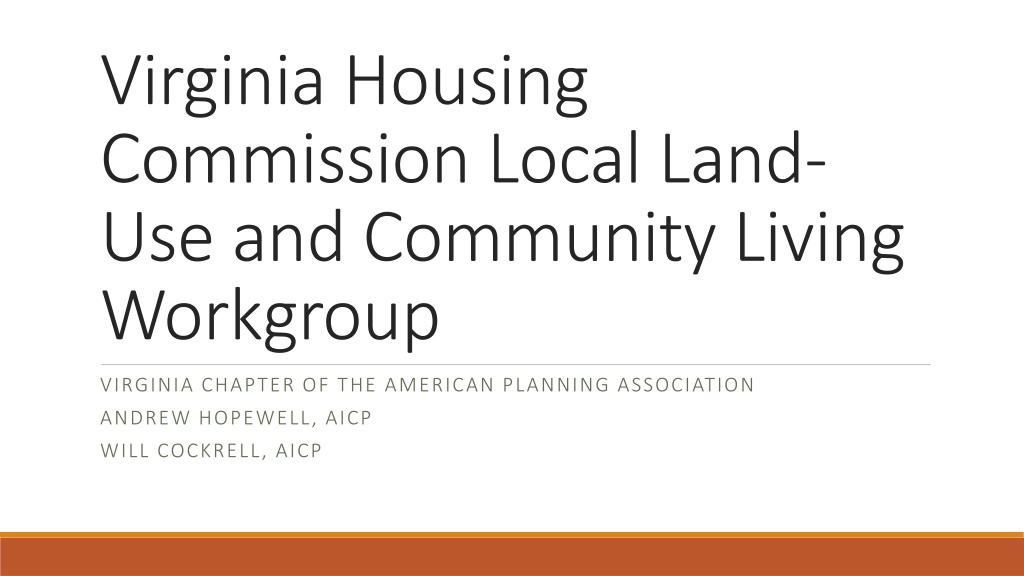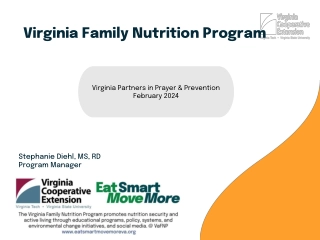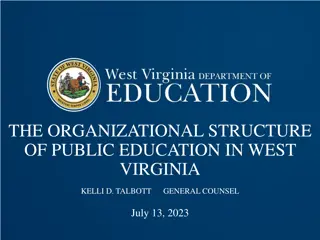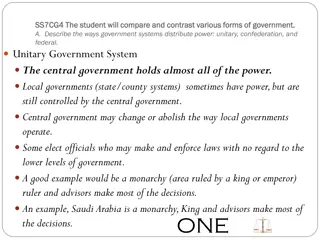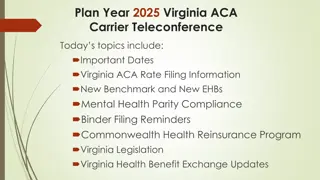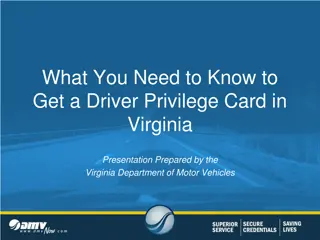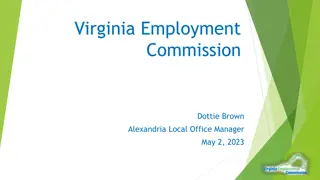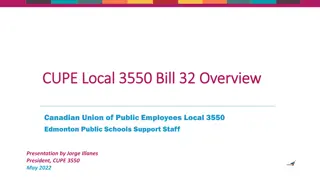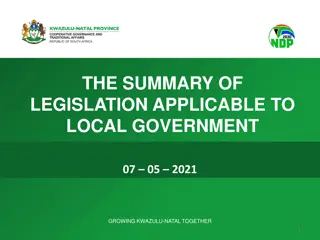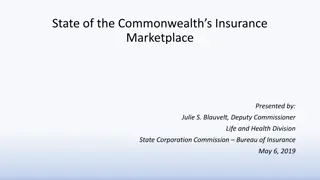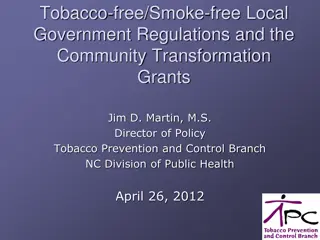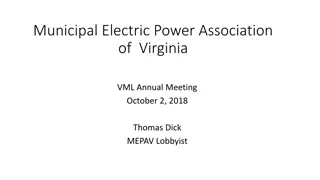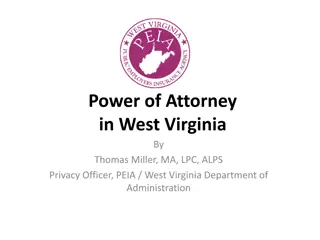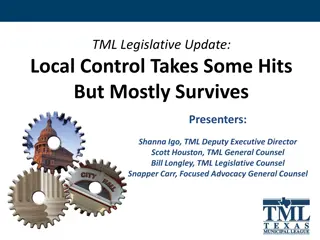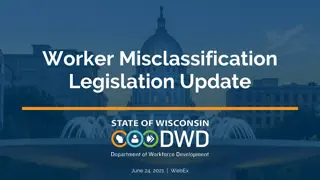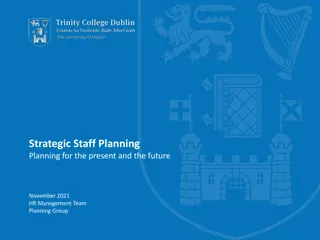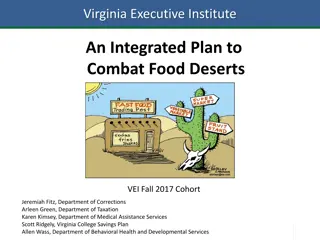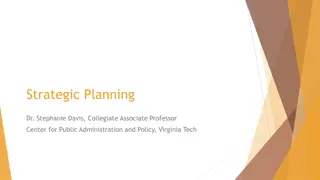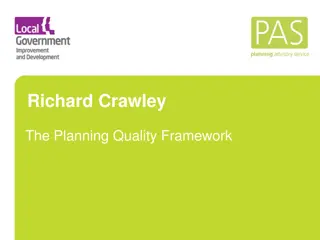Challenges in Virginia Local Government Planning Legislation
The Virginia housing commission and local land-use workgroup face challenges with proposed bills impacting comprehensive plans, rezoning applications, and approval timelines. Issues include conflicts with existing zoning ordinances, forced denials due to time constraints, and increased costs for resubmissions.
Download Presentation

Please find below an Image/Link to download the presentation.
The content on the website is provided AS IS for your information and personal use only. It may not be sold, licensed, or shared on other websites without obtaining consent from the author. Download presentation by click this link. If you encounter any issues during the download, it is possible that the publisher has removed the file from their server.
E N D
Presentation Transcript
Virginia Housing Commission Local Land- Use and Community Living Workgroup VIRGINIA CHAPTER OF THE AMERICAN PLANNING ASSOCIATION ANDREW HOPEWELL, AICP WILL COCKRELL, AICP
Local Government Actions related to Comprehensive Plans SB 721 / HB 1236 Bill has three key components of concern: 1. Invalidation of any ordinances, manuals or documents incorporating the Comprehensive Plan (15.2-2232 I.) 2. Removal of the ability for applicant to petition the Circuit Court and the automatic approval of plats if not acted upon within a certain number of days (15.2-2259 C.; 15.2-2259.1; 15.2-2260 D.; 15.2-2260 E.; 15.2-2260.1) 3. Reduced timeframe to process rezoning applications and potential inability to meet the prescribed timelines for amended motions as well as the loss of the ability of the applicant to request deferral beyond the prescribed timeframe (15.2-2286 7.)
Issues specific to #1(15.2-2232 I.) Conflict with VA Code Section 15.2-2284, which reads, in part: Zoning ordinances and districts shall be drawn and applied with reasonable consideration for the existing use and character of property, the comprehensive plan, . . . . . and the encouragement of the most appropriate use of land throughout the locality. Example: Arlington County s Subdivision Ordinance references the need for proposed streets to conform to their Master Transportation Plan which is an element of their Comprehensive Plan. Similarly, their Zoning Ordinance makes multiple references to their Comprehensive Plan to ensure that their Zoning Ordinance is enacting the desired outcomes articulated within the Comprehensive Plan. Town of Culpeper s Comprehensive Plan preamble states that The recommendations contained herein are provided for guidance and will be developed further through regulatory tools like the Zoning Ordinance, Subdivision Ordinance, . . . . .
Issues Common to #2 and #3 Forced denials of applications as there is insufficient time for revisions to be made Extended times to project approvals due to denials, resubmissions, locality prohibitions on resubmissions of substantially the same application within a given time period, the need for complete reviews of new submissions as opposed to reviews of revised submissions Additional costs of new submissions instead of revisions
Issues specific to #2 (15.2-2259 C.; 15.2-2259.1; 15.2-2260 D.; 15.2-2260 E.; 15.2-2260.1) Internal conflict within 15.2-2259 as subsection B provides VDOT with 45 days to review a plat and then provides the locality with an additional 35 days thereafter to act on the plat. This is an existing paradox, but currently the failure to act within 60 days does not result in an automatic approval. This will compel localities to act upon each submission and essentially preclude resubmissions as the timing will not accommodate a resubmission of the same application. New submissions have higher fees than resubmissions
Issues specific to #3 (15.2-2286 A.7.) This will compel localities to act upon each submission and essentially preclude resubmissions as the timing will not accommodate a resubmission of the same application. This will slow down applications as many localities have a mandatory waiting period before substantially the same rezoning application may be filed (12 months). This will hurt the transparency to the public of rezoning projects as they will have new case numbers with each new submission. This removes the ability for the applicant to request a delay to improve their application by only permitting a final action or a withdrawal.
Issues specific to #3 (15.2-2286 A.7.) This will also increase costs as new submissions have higher costs than resubmissions. Possible timing impossibility depending on interpretation as a resubmitted request that has previously been denied would be considered a new submittal by most localities and would need to be considered in public hearing by both the planning commission and governing body which would be near impossible, absent holding a concurrent hearing, to accomplish within 45 days.
